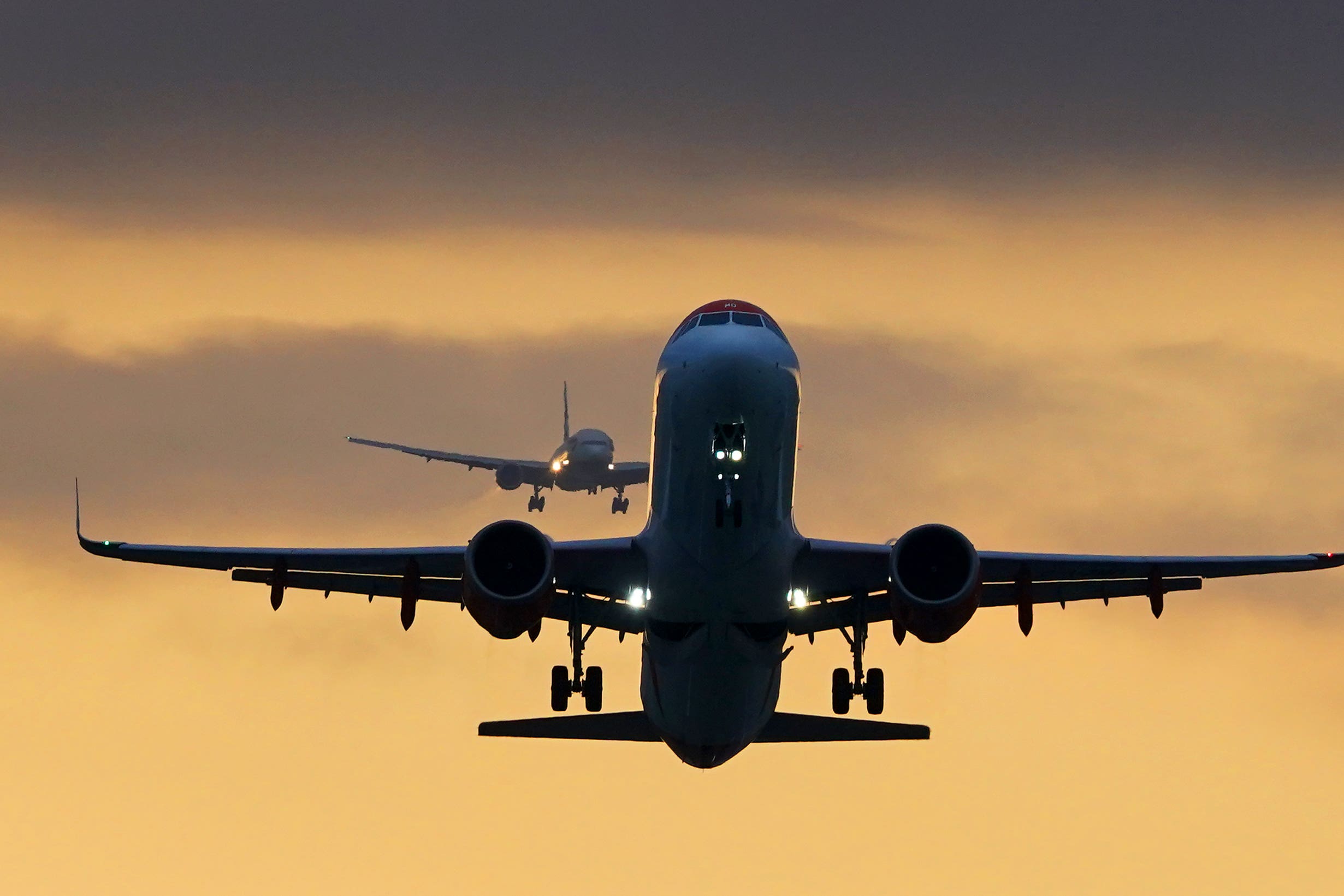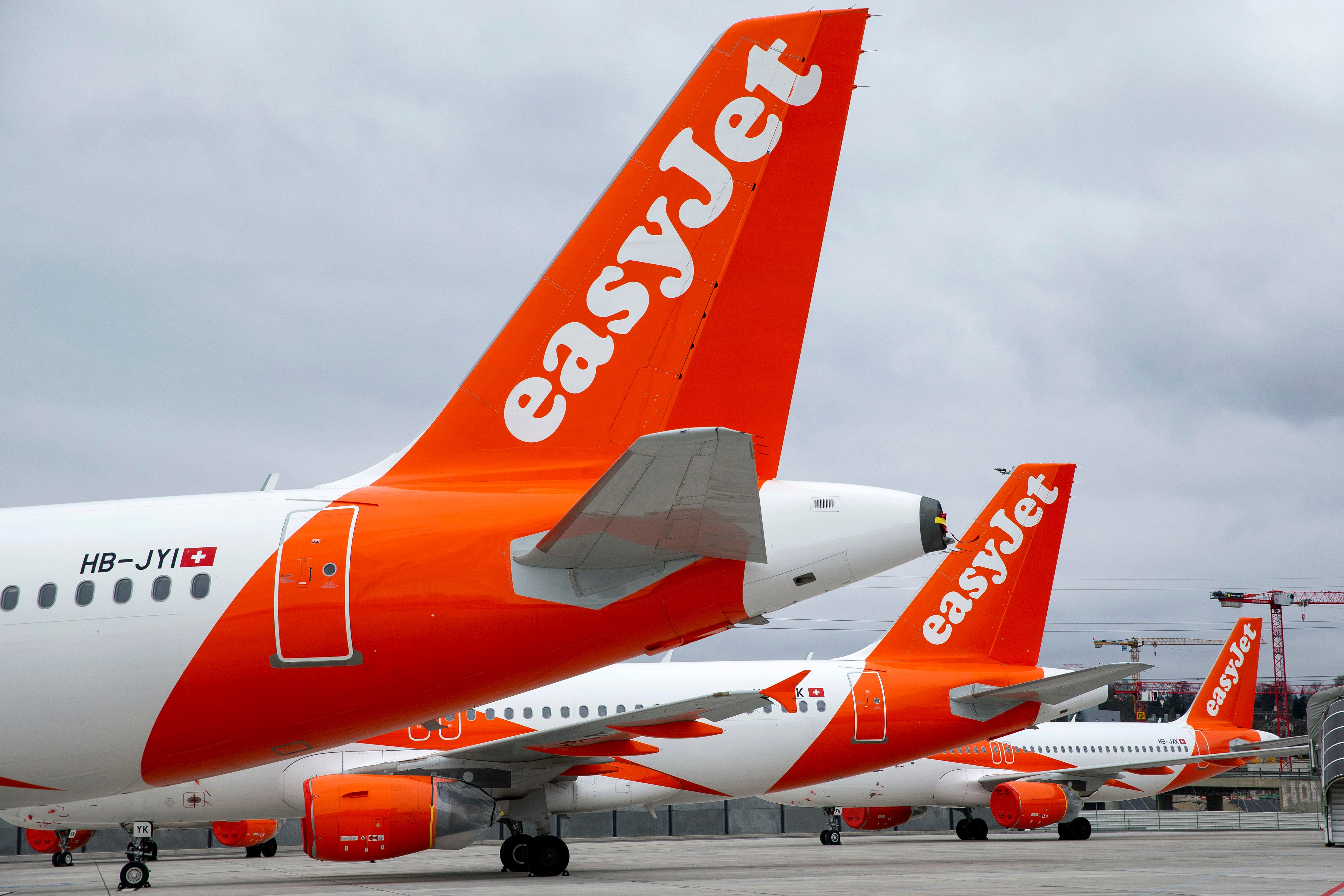Tackling issues with Europe’s airspace is “long overdue” and will speed up flights, a minister has said.
Aviation minister Mike Kane said UK airspace management is “an analogue system in a digital age”, and improvements will lead to “quicker, quieter, cleaner flights”.
He was speaking at an easyJet sustainability event at Cranfield University, where the airline said inefficient use of airspace contributes to increases in fuel consumption, carbon emissions and flight times.
The carrier described the problem as a “universal issue” across the whole of Europe, but the “greatest inefficiencies” for its operations are in the UK.
Among the causes are aircraft being required to climb in steps after take-off, complex routing, and delaying descents to manage the workload of air traffic control (ATC) staff.
EasyJet published the results of an AI-based study that found airspace inefficiencies increased its CO2 emissions in the year to the end of July by 10.6%.
For its flights from London Gatwick to Milan Malpensa, Italy the figure was around 19%.
Applying its analysis to the whole of European aviation, it estimated that airspace modernisation could help eliminate 18 million tonnes of CO2 from the continent’s skies every year.

Other inefficient routes highlighted by the carrier are flights to Gatwick from Palma de Mallorca, Spain; Faro, Portugal; and Nice Cote d’Azur, France.
Mr Kane told the audience he and easyJet chief executive Johan Lundgren have “banged on about this for years” while Labour was in opposition.
He said he wants to develop “a Britain where the negative impacts of aviation are minimised”.
He went on: “We have an analogue system in a digital age, closer to the time that (Soviet cosmonaut) Yuri Gagarin flew into space (in 1961) than today.
“That’s going to change under my watch.
“We can all enjoy quicker, quieter, cleaner flights that are better for our people and better for our planet.
“The highways in the sky were mapped shortly after (Cranfield University’s forerunner) the College of Aeronautics opened in 1946, so it’s safe to say that airspace modernisation is long, long overdue.”
Labour’s general election manifesto included a pledge to “secure the UK aviation industry’s long-term future” including through “encouraging airspace modernisation”.
EasyJet is calling on the UK Government to complete an airspace modernisation programme focusing on the South East.
The airline is also planning to collaborate with individual countries, ATC providers and airports elsewhere in Europe to tackle inefficiencies.
The European Union has held discussions over improving use of its airspace, named the Single European Sky initiative, for many years but little progress has been made.
EasyJet chief executive Johan Lundgren said: “Airspace modernisation is the quickest and most cost-effective way to reduce carbon emissions, but the process is being shackled by needless bureaucracy.
“Our data proves that the airspace corridors we use today, which were built in the 1950s, are simply no longer fit for purpose.
“Adapting them to be more efficient would not only be significant in terms of CO2 reduction but for journey times and improving the experience of passengers.
“This can can’t be kicked down the road any further.
“If we’re serious about achieving net-zero, policymakers and regulators need to come together to find a route to unlock these significant gains, and now.”

EasyJet also announced it has become the first European airline to partner with US-based start up company Jet Zero, which is developing a so-called blended wing aircraft, which incorporates the wing and fuselage into a single shape to boost fuel efficiency.
Jet Zero is hoping its first plane will enter commercial service by 2030.
In 2022, easyJet pledged to achieve a 35% reduction in carbon emissions per passenger kilometre by 2035 compared with 2019 levels.
It said it has so far made a 5% improvement.

